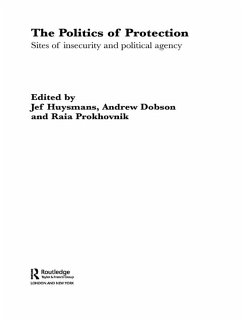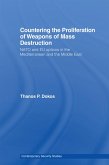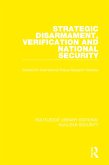It focuses on the theme of protection. It moves away from the dominant question of whom or what is threatening to the crucial questions of who is to be protected, and in the case of conflicting claims, who has the capacity to define whose needs prevail.
It also poses the question of political agency in relation to some of the most significant questions raised in relation to the governance of insecurity and protection in the contemporary world. The authors identify and explore issues that challenge or raise a number of questions about the traditional notion that states are to protect their citizens through retaining a monopoly over the legitimate use of violence.
Dieser Download kann aus rechtlichen Gründen nur mit Rechnungsadresse in A, B, BG, CY, CZ, D, DK, EW, E, FIN, F, GR, HR, H, IRL, I, LT, L, LR, M, NL, PL, P, R, S, SLO, SK ausgeliefert werden.









